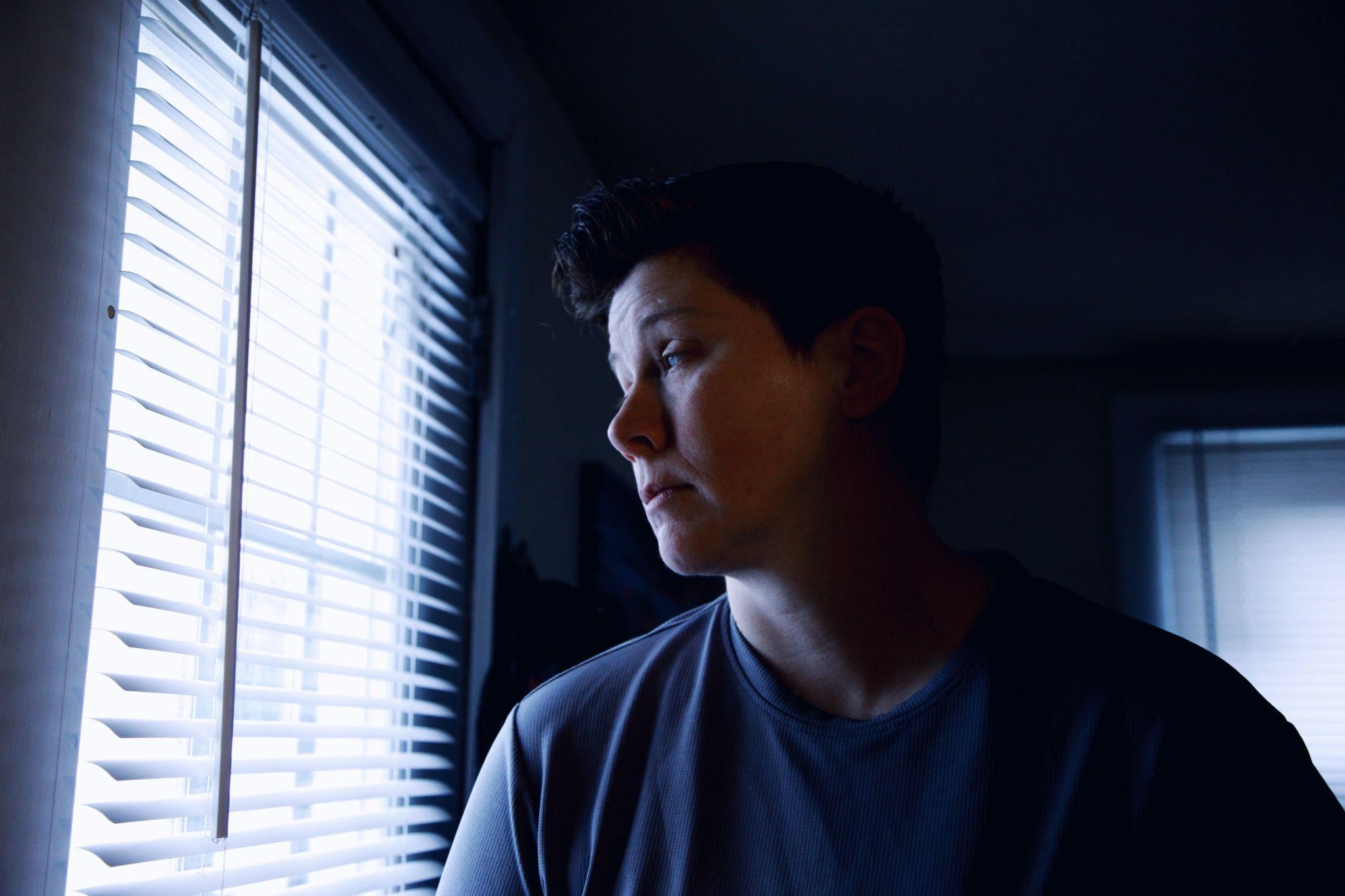London Rehab
Outpatient Addiction Treatment
The Way it Should Be... At Our Private London Rehab Clinic
Rehab in London
Rehabilitation, commonly referred to as rehab, is a crucial aspect of recovery for individuals struggling with various physical or behavioural addictions,and mental health issues. With its bustling lifestyle and diverse population, London offers a multitude of options for those seeking rehabilitation clinics.
Step By Step Recovery’s London clinic provides specialised programs designed to address specific types of addiction, such as alcohol or drug addiction. They offer a range of treatments and therapies, including individual counselling, holistic therapy, group therapy sessions, detoxification programs, and aftercare support.
Contact Us for Free Advice and Begin Your Addiction Recovery Now




What Makes Step by Step’s London Rehab Clinic Different?
A medical detox followed by addiction therapy has the potential to significantly increase your chance of overcoming all types of substance abuse. At Step by Step Recovery, during your outpatient treatment programme, you will access evidence-based therapies and rehab facilities shown to address the causes of addiction and help your long-term recovery.
We use a multi-target approach when it comes to treatment for addiction, adapting individual treatment plans according to your most relevant needs. When you complete your treatment at our London rehab, our New Way to Live scheme continues to support you. Through our New Way To Live scheme, you are linked with a mentor who is secure and consistent in their rehabilitation and can provide you with guidance and advice about connecting with online or in-person events and social groups.
Call us now for help
Addiction Support and Advice
Outpatient addiction treatment allows you to go through the treatment process while living at home. It is different from inpatient treatment, which requires you to stay in a residential rehab centre for a specified period.
We will support you at our London rehab clinic during a medically assisted detox and an outpatient treatment and rehabilitation programme tailored to meet your individual needs. Step by Step Recovery’s rehab in London has a multidisciplinary team with comprehensive clinical expertise and a genuine understanding of overcoming drug or alcohol addiction.
Does Outpatient Addiction Treatment Work?
You may have heard that residential rehab has a higher success rate, with lower rates of relapse, and while this is true, it doesn’t mean outpatient addiction treatment is not effective. We also know that not everyone can attend residential treatment or remain in residential rehab for as long as they may need or want to.
Outpatient addiction treatment may be used as a step-down from a stay at our residential rehab in Essex or as an alternative to inpatient care. Whatever the reason you need to undertake outpatient rehab in London, our experienced team will do everything they can to ensure your treatment is effective.
When you are undergoing your detox at home, you will have 24-hour access to a medically trained, strong support system by telephone. During your rehabilitation, one-to-one counselling and group therapy sessions, ensure you have a structured and intensive treatment programme.
Signs of Addiction
Accepting you need addiction treatment is challenging when you are in the throes of addiction. Here are six signs that may help you to recognise if you have an alcohol addiction or substance use disorder (SUD). If you identify with two or more of the below signs, please contact us for free advice about outpatient addiction treatment at our London rehab clinic.
- Unsuccessful attempts to reduce or control your use of drugs or alcohol
- Experiencing tolerance and increasing the amount or frequency of use to get the same effects
- Withdrawal symptoms when you try to reduce or stop using a substance
- Constantly thinking about when you can next use drugs or alcohol
- Withdrawal from people and recreational activities, to spend time obtaining and using drugs or alcohol
- Continuing to use even when you are aware of health problems and negative social effects of your drug or alcohol abuse.
Dependence vs Addiction
Although there are signs that separate dependence from addiction, there are also many signs that overlap. It is recommended that addiction treatment is sought as soon as you develop symptoms of dependence for the highest chance of recovery.
When tailoring a treatment programme, recognising signs of dependence or addiction is simply a way for addiction experts to ensure they support your personal needs. Both dependency and addiction are diagnosed as substance use disorder (SUD) regardless of the presence of or lack of withdrawal symptoms.
Addiction treatment can be powerful in both outpatient and residential rehab when the right level of support is provided. If you can’t stay away from home, attending outpatient treatment at our London rehab gives you access to medical professionals who can help you overcome addiction.
Our rehab in London provides you with critical medical support and rehabilitation in the form of outpatient treatment, which strengthens your prospect of continuing to live a life free from addiction.
Two types of outpatient treatment are available at our rehab in London:
- Complete day addiction treatment programmes with a doctor-led medically assisted detox.
- An addiction counselling and rehabilitation programme that is generally provided over a three to six-month period (often as additional support following inpatient treatment at ou Essex residential rehab centre).
Addiction Treatment and Relapse Prevention Therapy
Your road to recovery is unique to your circumstances and experiences. At Step by Step Recovery, we know that the causes of addiction are multiple and made up of individually related parts. Our philosophy is to offer individualised addiction treatment options and therapy that adapts to fulfil your requirements and eradicates the chance of relapse.
Your bespoke outpatient programme incorporates:
- Relapse prevention therapy
- Cognitive behavioural therapy (CBT)
- Dialectical behavioural therapy (DBT)
- One-to-one counselling sessions and psychological treatment
- Group therapy
- Family therapy
How Much Does Outpatient Addiction Treatment Cost?
The cost of outpatient addiction treatment can vary widely depending on several factors, including the location of rehab, the specific program or facility, the duration of treatment, and the services provided. Outpatient addiction treatment is generally more affordable than inpatient or residential treatment, but it still incurs expenses.
The cost of rehab may cover various services such as counselling, therapy sessions, group sessions, medication management, and educational programs.
It’s essential to consider additional rehab costs that may not be included in the base treatment fee, such as initial assessments, drug testing, medications, and any required materials or resources. Some outpatient programs may also offer sliding scale fees or financial assistance based on income.
If you can not afford the private treatment, you can access free drug and alcohol treatment services through the NHS.
Permanent recovery from addiction is possible. If you’re looking for outpatient or residential addiction treatment near London, we are here to provide free advice.
Why choose Step by Step?
- Fully Residential
- Around-the-clock care
- Medical detox unit
- Extended family support
- After care support service
- Nutritional food cooked by our chefs
- Outstanding quality of care
- Highly experienced team
Treatment for addiction
Where to find us
Our locations in London, by appointment only.
FAQs
Inpatient rehab, also known as residential treatment, involves residing within a specialised treatment centre for the duration of the program. This type of private rehab provides round-the-clock care and support, with a focus on intensive therapy and a structured daily schedule. It also minimises the risk of relapse since residents at an inpatient facility will not have access to alcohol or drugs. A private rehab clinic is recommended for individuals with severe addiction or those who require a higher level of medical and emotional support.
Outpatient rehab, on the other hand, allows individuals to receive treatment while still living at home and maintaining their daily responsibilities. Outpatient programs typically involve scheduled therapy sessions and support groups that the individual attends on designated days and times. Unlike inpatient programmes, this type of drug or alcohol rehab is suitable for individuals with a less severe addiction or those who have completed inpatient treatment and are transitioning back into their daily lives.
Detoxification, commonly referred to as detox, is the first step in the process of recovering from substance abuse. It involves allowing the body to rid itself of drugs or alcohol while managing withdrawal symptoms that may arise. The duration of a detox procedure can vary depending on various factors, including the substance abused, the individual’s overall health, and the severity of addiction.
The length of a detox can range from a few days to a couple of weeks. In general, detox programs for alcohol addiction tend to last around 5-7 days, while detox programs for highly addictive prescription or illegal drugs such as opioids or benzodiazepines may take longer.
It’s important to note that detox is just the initial phase of the recovery process and is not sufficient on its own to achieve long-term sobriety. Following detox, individuals are strongly encouraged to continue their treatment in a rehabilitation centre that offers a comprehensive addiction rehab program that includes therapy, counselling, and other supportive services.
If you have a loved one who is struggling with addiction, it can be a difficult and delicate situation to approach. Suggesting addiction rehab to them requires empathy, understanding, and patience. Here are some steps to consider when suggesting rehab to your loved one:
Educate yourself: Before approaching your loved one, make sure you have a good understanding of addiction and the treatment options available in London. Research different rehab facilities and programs to be able to provide accurate information and answer any questions they may have.
Choose the right time and place: Find a calm and private setting where you can have an open and honest conversation without distractions or interruptions. Choose a time when your loved one is sober and receptive to discussing their addiction.
Express concern and empathy: Approach the conversation with care and empathy, expressing your concern for their well-being. Let them know that you are there to support them and that rehab can offer them a path towards recovery and a healthier life.
Highlight the benefits of rehab: Explain the potential benefits of addiction rehab, such as professional guidance, a supportive community, and the opportunity to learn coping mechanisms and skills to overcome addiction. Emphasise that rehab can provide them with the tools and resources they need to overcome their addiction and lead a fulfilling and happy life.
Offer assistance: Let your loved one know that you are willing to help them find a suitable rehab facility in London and support them throughout the process. Offer to accompany them to appointments or assist with any logistical arrangements.
Listen and be patient: Allow your loved one to share their thoughts and feelings about rehab. Listen actively and without judgement, allowing them to express their concerns or reservations. Be patient with them as they may not be ready to accept help right away.
Provide resources: After the conversation, provide your loved one with information on rehab facilities in London and any other relevant resources that can assist them in making an informed decision.
Holistic therapies for addiction treatment approach the recovery process from a comprehensive and integrated perspective, considering not only the physical symptoms but also the emotional, spiritual and the individual’s mental health condition. These therapies recognize that addiction is a complex issue that affects various dimensions of one’s well-being and seek to address each of them to achieve long-term recovery.
One common holistic therapy used in addiction treatment is acupuncture. This ancient practice involves inserting thin needles into specific points on the body to restore balance and promote healing. Acupuncture has been found to help reduce cravings, alleviate withdrawal symptoms, and promote relaxation.
Another holistic therapy is yoga, which combines physical postures, breathing exercises, and meditation to promote mindfulness and relieve stress. Yoga has been shown to improve mood, reduce anxiety and depression, and enhance overall well-being.
Meditation and mindfulness practices are also commonly used in addiction treatment. These practices involve training the mind to focus on the present moment and observe thoughts and emotions without judgement. They can help individuals develop self-awareness, manage stress, and prevent relapse.
Other holistic therapies for addiction treatment include art therapy, equine therapy, music therapy, massage therapy, nutritional counselling, and mindfulness-based cognitive therapy. These therapies aim to address the physical, emotional, and spiritual aspects of an individual’s recovery journey and provide additional tools for coping with cravings, triggers, and emotional challenges.
